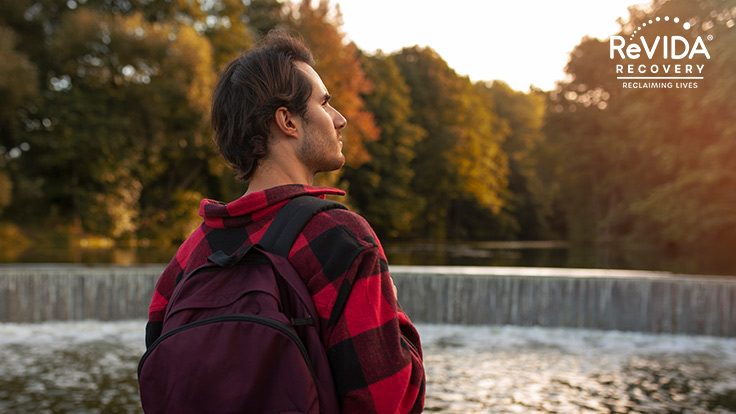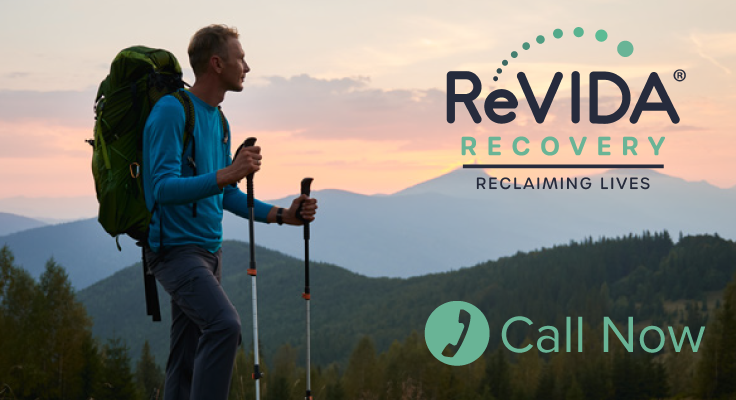
Fentanyl is sneaky. Not just because it’s often hiding in other substances (like heroin or cocaine), but because it’s so powerful. A tiny amount of fentanyl can cause harm to your body. In 2021, 70,601 deaths were caused by fentanyl in the United States. That’s over 26 times the amount of deaths caused by fentanyl a decade ago. This means that these deaths aren’t just happening – they’re increasing. But why is this happening? How does fentanyl cause a fatal overdose?
At ReVIDA® Recovery, we’ve seen fentanyl control the lives of too many in our community. Our goal is to help people reclaim their lives from substance use, which is why we’re talking about fentanyl today.
Table of Contents
Death Rate of Fentanyl in the U.S.
Here are some death rates provided by the National Institute of Drug Abuse (NIDA), the Centers for Disease Control and Prevention (CDC), the Tennessee Department of Health, and the United States Drug Enforcement Administration (DEA).
- Deaths caused by synthetic opioids like fentanyl rose from 47,600 deaths in 2017 to 68,000 deaths in 2021
- 12,499 people died in 2021 from fentanyl-laced benzodiazepines
- Over 150 people die each day from synthetic opioids
- 542 emergency room visits were because of fentanyl in 2021
- Fentanyl overdose visits to the emergency room occur mostly in people age 26-39
- Fentanyl overdose deaths have steadily been climbing since 2010
- Fentanyl overdose mortality rates are higher in the Appalachian region than anywhere else in the United States
Fentanyl Death Rates in Tennessee
- For every 100,000 Tennessee residents, more than 30 people die each year because of fentanyl
- Over 51% of all overdose deaths in Tennessee are due to fentanyl
- 54% of all overdose deaths in Tennessee are due to polydrug use, typically involving fentanyl and another substance
- Between 2018 and 2019, fentanyl overdose deaths increased by 46% in Tennessee
Can You Overdose From Fentanyl by Touch?
Touching fentanyl isn’t going to cause an overdose because it has a hard time penetrating the barrier of the skin. In other words, your skin acts as a form of protection against fentanyl. So if you’ve touched a doorknob or drug paraphernalia, it isn’t likely that you’ll have a reaction. However, there’s still a small chance of it impacting you, depending on the amount and whether or not your skin is broken or porous. Because of this, it’s a good idea to wash your hands. Avoid using hand sanitizer – it won’t work for this.
There are other ways to accidentally overdose on fentanyl, especially if you’re frequently exposed to it. Inhalation, mucous membranes, a needlestick, or ingestion can cause an overdose. If you’re in an area where there is a large supply of fentanyl or a powerful concentration of it, wear a mask and keep your distance.
Symptoms to Look for When Exposed to Fentanyl
If you believe you’ve been exposed to fentanyl, pay attention to how you’re feeling. Here are some common signs that you may have been exposed:
- Dizziness
- A fast heart rate
- Disorientation
- Extreme fatigue (like you immediately need a nap)
- Drowsiness
- Anxiety
- Confusion
If you believe you’re experiencing fentanyl exposure, there are some steps you can take to make sure you are safe. First, remove yourself from any activity. That means if you’re driving, pull over. If you’re holding your child, set them down. If you’re cooking, turn off the stove and go sit down. Second, you’ll want to make a call to the emergency room so they’ll know you’re coming. You can request an ambulance or you can have someone drive you. Your vital signs should be monitored to ensure that you’re not experiencing an overdose.
If you believe you’re experiencing an overdose but you’re afraid to seek medical help or you’re unable to do so, Narcan® (naloxone) can help. The Food and Drug Administration (FDA) just approved over-the-counter naloxone nasal spray in March of 2023. That means if you’re someone who is regularly exposed to fentanyl, or if you’re someone who’s managing a fentanyl use disorder, you can be prepared. Keep the nasal spray in your purse, pocket, or in your car where you can easily get to it. After you’ve administered Narcan® (naloxone), it’s still a good idea to seek medical care as soon as possible.
Please note: if you believe someone you care about is experiencing a fentanyl overdose, don’t hesitate to call 911 immediately for medical assistance. The Good Samaritan Law in Tennessee prevents you from being legally penalized for possession when you’re seeking help.
How Much Fentanyl Does It Take To Cause a Fatal Overdose
Fentanyl is 50-100 times stronger than other synthetic opioids in its class. In other words, the amount of fentanyl you’d need to take to overdose is much smaller than other opioids. So much smaller, in fact, that a speck of fentanyl is enough to cause an overdose. To put it into perspective, a dose of fentanyl around the same size as the tip of a pen is enough to cause a lethal reaction.
Fentanyl can cause an overdose by being “too much” for your body to handle. Once a lethal dose is ingested, your primary organs begin to shut down. If you or someone you love is managing an illicit substance use disorder and you’re unwilling or unable to seek addiction treatment, Narcan® (naloxone) should be on your person at all times in order to reverse the overdose.
Illicit drugs have no FDA approval or oversight. No matter how much you or your loved one may trust your drug dealer, it’s never worth your life.
Getting Treatment for Fentanyl Use Disorder
At ReVIDA® Recovery, we have seen firsthand how effective evidence-based fentanyl addiction treatment can be. It doesn’t matter how long you’ve been taking fentanyl or how impossible it feels to stop right now – recovery is always possible. Let’s talk about some of the treatment options we offer here that could be right for you.
Medication-Assisted Treatment (MAT)
While you’re here for MAT, you’ll be closely monitored by a compassionate and knowledgeable staff. Medications are available that can help in alleviating fentanyl withdrawals and guiding you safely into recovery. You’ll also have access to resources that can help you on your journey moving forward, including individual counseling, group counseling, and support groups. In an MAT program, we use medications alongside traditional therapy to guide you away from opioids and into a healthy life of recovery.
You’ll also have the option to move forward with our outpatient treatment program. If a higher level of care is warranted, we will provide referrals for a local inpatient or residential treatment program. Your clinician will go over all of your options to set you up for success.
Suboxone® (Buprenorphine) Treatment
Medication-assisted treatment, or MAT, is a safe and evidence-based way to treat OUD. At ReVIDA® Recovery, we support the use of Suboxone® (buprenorphine) because it has been proven to reduce cravings while working to prevent relapse. To receive Suboxone® (buprenorphine) treatment, you will have to be opioid-free for 24 hours.
Outpatient Rehab Services
We believe that both individual and group therapy are critical components in the treatment of OUD – especially if you’re looking for long-term recovery. This is a safe and supportive space where you will learn how to manage your triggers and create healthy coping mechanisms. Our behavioral healthcare team is composed of licensed therapists, certified counselors, care coordinators, and peer recovery specialists who are standing by and ready to help. If we can treat your addiction where it started, at its roots, your chance of recovery is greater than if we were to simply treat the side effects of fentanyl withdrawal.
At ReVIDA® Recovery, we’re standing by to help you reclaim your life from fentanyl. Recovery is possible, and you can start your journey to wellness whenever you’re ready. To learn more or to schedule an appointment, please call us today at 423-631-0432.
FAQs About Fentanyl Death
Can fentanyl cause sudden death?
Yes, fentanyl can cause sudden death, especially due to an overdose.
How is fentanyl overdose handled?
If you believe you’re experiencing an overdose but you’re afraid to seek medical help or you’re unable to do so, naloxone (Narcan®) can help. The Food and Drug Administration (FDA) just approved over-the-counter naloxone (Narcan®) nasal spray in March of 2023. That means if you’re someone who is regularly exposed to fentanyl, or if you’re someone who’s managing a fentanyl use disorder, you can be prepared. Keep the nasal spray in your purse, pocket, or in your car where you can easily get to it. After you’ve administered Narcan® (naloxone), it’s still a good idea to seek medical care as soon as possible.
How high is the death rate from fentanyl?
In 2021, 70,601 deaths were caused by fentanyl in the United States. That’s over 26 times the amount of deaths caused by fentanyl a decade ago.









